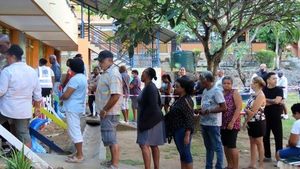In a week marked by turmoil and tragedy, two regions at India’s northern frontier—Ladakh and Pakistan-occupied Kashmir (PoK)—have erupted into protest, violence, and calls for justice. The unrest has drawn sharp condemnation from Indian officials and civil society leaders, highlighting deep-seated grievances over human rights, environmental threats, and the struggle for constitutional recognition.
It all began with simmering discontent. In PoK, what started as yet another round of civilian protests quickly escalated into a full-blown internal uprising. According to reports cited by NDTV and The Tribune, more than a week of demonstrations and violent crackdowns unfolded in the days leading up to October 4, 2025. The protesters—ordinary men and women—were demanding basic rights, justice, and an end to what they described as systemic oppression by Pakistani authorities.
The situation turned deadly. At least 10 people lost their lives, and many more were injured during the protests and violent clashes in PoK. The unrest, which began with calls for justice, spiraled as negotiations between demonstrators and authorities failed, plunging the region into dangerous uncertainty. The scale of the violence and the government’s response drew immediate attention across the border in India.
India’s reaction was swift and unequivocal. External Affairs Ministry spokesperson Randhir Jaiswal, responding to media queries at his weekly briefing, did not mince words. “We have seen reports on protests in several areas of Pakistan-occupied Jammu and Kashmir, including brutalities by Pakistani forces on innocent civilians,” Jaiswal stated, as reported by NDTV. He continued, “We believe that it is a natural consequence of Pakistan's oppressive approach and its systemic plundering of resources from these territories, which remain under its forcible and illegal occupation.” Jaiswal’s condemnation was pointed: “Pakistan must be held accountable for its horrific human rights violations.”
This is not the first time India has called out Pakistan over its governance of PoK, but the latest events have heightened the urgency. The deaths and injuries have become a stark reminder of the costs borne by civilians caught in the crossfire of political disputes and heavy-handed state responses. The Indian government’s strong language reflects a growing impatience with what it sees as Pakistan’s disregard for the rights and welfare of people living under its control.
While the crisis in PoK captured headlines, unrest was also brewing much closer to home. On September 24, 2025, Ladakh—a region at the heart of India’s Himalayan frontier—witnessed a tragic episode of its own. During a demonstration in support of ongoing demands for constitutional rights and environmental protection, police opened fire on protesters, resulting in the deaths of four civilians and injuries to more than 50 others. The violence was reportedly triggered after the health of hunger strikers deteriorated, sparking widespread outrage and a spontaneous mass protest.
The response from civil society was immediate and forceful. On October 3, 2025, a coalition of organizations from neighboring Himachal Pradesh publicly condemned the police crackdown on peaceful protesters in Ladakh. The coalition, comprising environmentalists, legal experts, labor leaders, and other community representatives, demanded urgent intervention from the Central Government. Their joint statement expressed deep concern over what they described as the government’s “deliberate delay tactics” and “negligent attitude” in addressing Ladakhi people's democratic and constitutional demands.
Among the most vocal supporters of the Ladakhi cause was climate activist Sonam Wangchuk, known for his steadfast commitment to non-violence and dialogue. The coalition praised Wangchuk’s leadership and denounced the use of the National Security Act (NSA) against him, calling it a retaliatory move. They also criticized the rollback of land allotted to Wangchuk’s educational institutions and what they saw as the misuse of investigative agencies for political vendetta.
The civil society organizations outlined four major demands on behalf of the Ladakhi people: full statehood for Ladakh; inclusion under the Sixth Schedule of the Indian Constitution to protect local land, resources, and environment; allocation of two seats in the Lok Sabha (India’s lower house of parliament); and job reservations for locals. Their demands reflect long-standing concerns over the region’s political representation and the protection of its fragile ecosystem.
Environmental concerns featured prominently in their critique. The coalition warned that unregulated development—such as mega solar parks, hydropower projects, mining operations, and heavy infrastructure—poses severe risks to the Himalayan environment, its glaciers, and the livelihoods of local communities. Citing large-scale land acquisitions for power, rail, and mining projects, they alleged that the government’s real intention is to enable corporate exploitation of Ladakh’s rich natural resources.
The organizations called for a comprehensive response from the government, including the revocation of NSA charges and the unconditional release of detained activists, an impartial judicial inquiry into the police firing, sincere dialogue with Ladakhi leadership, a ban on destructive industrial activities across the Himalayas, and the development of an ecologically sensitive mountain development policy. They warned that continued disregard for Ladakh’s voice could have serious national consequences, especially in this strategically sensitive border region.
The dual crises in PoK and Ladakh have put a spotlight on the challenges of governance, human rights, and environmental stewardship in the Himalayan belt. On one side, there is the tragedy of PoK, where calls for justice have been met with violence and suppression. On the other, the situation in Ladakh underscores the perils of ignoring local aspirations and ecological realities in pursuit of rapid development.
What ties both stories together is a sense of frustration—whether with unresponsive authorities, failed negotiations, or the slow pace of political reform. In PoK, protesters have risked their lives to demand basic rights and an end to systemic oppression. In Ladakh, the deaths of civilians and the subsequent outcry have galvanized a coalition of activists and community leaders determined to see their region’s voice heard and its environment protected.
As the dust settles, the demands for accountability and reform grow louder. Whether in the streets of PoK or the high-altitude villages of Ladakh, the message is clear: people want justice, recognition, and a say in their own futures. The coming weeks will test the resolve of governments and civil society alike to address these grievances, prevent further tragedy, and chart a more inclusive and sustainable path forward.
For now, the eyes of the nation—and indeed, the world—are fixed on these restive frontiers, waiting to see if calls for justice and dialogue will finally be answered.




